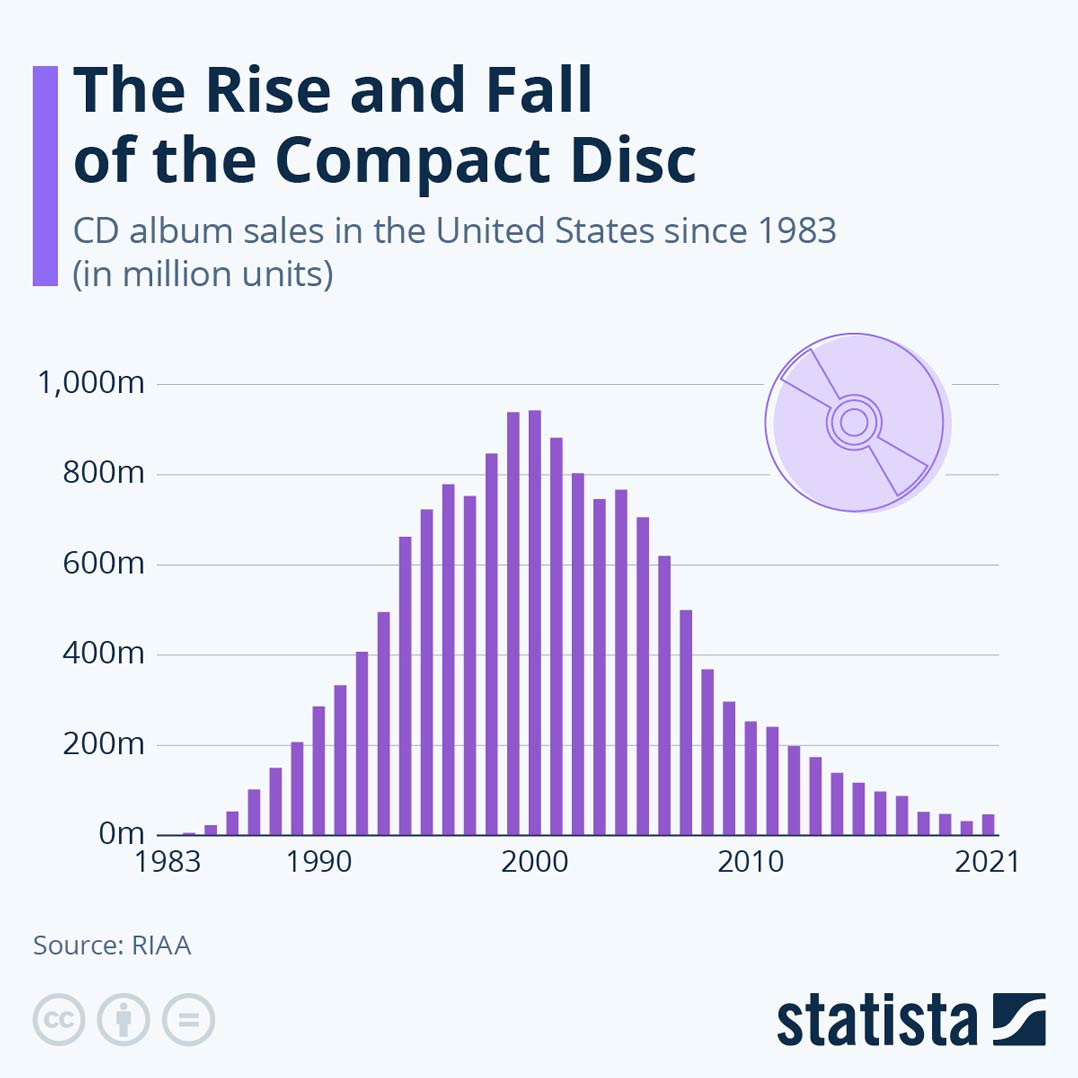 For years, vinyl records have defied sales expectations, with their popularity growing even as streaming music has come to dominate the industry.
For years, vinyl records have defied sales expectations, with their popularity growing even as streaming music has come to dominate the industry.
The likes of Spotify, Apple Music and YouTube Music made physical formats – vinyl, CD and tapes – less attractive, and music stores across South Africa, including chains such as Musica and Look and Listen, closed as demand slumped.
There was a time when people waited with bated breath for the latest record to be released or spent hours at listening stations trying to decide which CDs to buy.
These days, most people stream their music online or buy digital tracks through services like iTunes. But what happened to the old bricks-and-mortar retail outlets that used to house records and CDs?
South Africa’s last remaining music retail chain, Musica, closed its doors in May 2021 when the move to digital streaming, coupled with the Covid pandemic, killed off the business.
Look and Listen, another popular store that opened its first store in 1969 in Eloff Street, Johannesburg and eventually expanded to 19 outlets in shopping centres around South Africa, also did not survive the storm. Its last store closed in 2017 after nearly 50 years in business.
PwC Africa entertainment and media leader Alinah Motaung said: “The vast entertainment and media complex is growing more rapidly than the global economy, and with each passing year more people are spending more of their time, attention and money on the complex and increasingly immersive experiences available. In essence, the industry is becoming more digital, more mobile, more pitched at media that attract the young, and more evenly distributed around the globe.”
CD comeback?
According to Gear Patrol, a US-based product review site, for the first time in almost two decades, CD sales are rising in that country.
“After being in a steady decline since 2000, CD sales grew in 2021 for the first time in nearly two decades. CDs are simply the best-sounding physical audio format that most people can get their hands on.
“Most streaming services – Tidal and Apple Music are exceptions – compress their music. While most consumers don’t have the audio hardware to tell the difference, audiophiles prefer uncompressed (or lossless) music, which is also offered on CDs.
Read: Spotify hikes prices but South Africa is still cheap for music streaming
Audio hardware manufacturers continue to make CD players precisely because of demand from audiophiles. As Gear Patrol notes, in the past few years companies such as Cambridge Audio, Panasonic, McIntosh, Rotel and Sony have all released new CD players.
There are also a huge number of CDs in people’s homes. In the US, for example, music fans have purchased 14.9 billion CDs since the format’s arrival. That’s according to the Recording Industry Association of America, which also says physical music sales – primarily vinyl records, but CDs, too, and even cassettes – increased by 4% in 2022 compared to the year before.

Physical-format sales accounting for US$4.6-billion of the $26.2-billion worldwide music market, according to the International Federation of the Phonographic Industry’s Global Music Report 2023.
It was the second consecutive year that physical music sales increased, the IFPI said. Vinyl has been the driving force, with revenue up 17.1% in 2022, after a 51.3% increase in 2021. CD sales declined slightly in 2022, the report said.
Asked about sales in South Africa, Compact Disc Warehouse, a South African online music store, said: “There are plenty of people who still prefer to listen to music due to the clarity of the sound. There’s also a consensus that, unlike physical music formats, digital music files are inferior in sound quality – hence some audiophiles preferring music on CD.
“Although CDs are no longer manufactured in South Africa, we go all-out to source albums that are in demand. We import CDs from the US, Europe and Japan. Some customers are even willing to pay more than R300 for an imported CD,” said CD Warehouse.
For example, there was a recent customer who requested that the company import the new Kylie Minogue album, Tension. It turned out the album would cost R380; nonetheless, the customer went ahead with the purchase.
“The genre that sells more than any other is R&B, followed by rock and jazz. Although technological advancements have changed the way music is distributed and consumed, there are people, particularly the older generation, who have not adapted, or are unwilling to embrace new methods of listening to music by streaming it, or are unwilling to pay monthly subscription fees and high data costs,” CD Warehouse said. Some customers simply prefer to have a tangible product in their hands.
Movies, too
The same shift in sentiment seems to be informing movie watching.
Since Netflix first launched its streaming service in 2007, consumers have shifted away from physical movies, even ditching their DVD and Blu-ray players in favour of online viewing.
With thousands of movies and TV shows available to stream from companies including Netflix, Disney, Hulu, Amazon and Apple, DVDs have become all but obsolete. Best Buy in the US, for example, announced earlier this month that it would no longer stock DVD movies.
Read: Tech is poised to disrupt the music industry – all over again
South Africans can still buy DVDs via Takealot. Loot and various specialist stores also still supply limited stock of DVDs. — (c) 2023 NewsCentral Media




